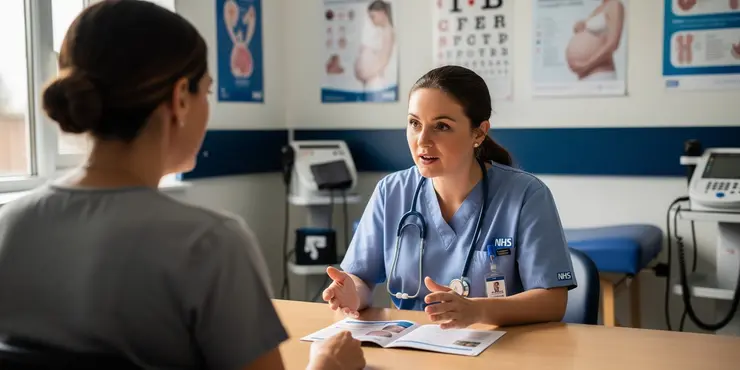
Find Help
More Items From Ergsy search
-
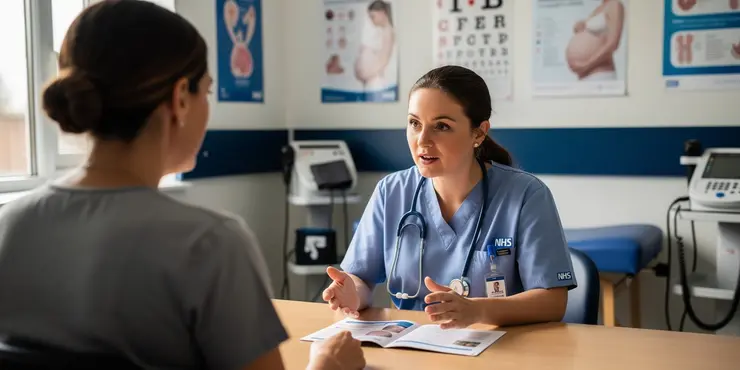
What is congenital rubella syndrome?
Relevance: 100%
-
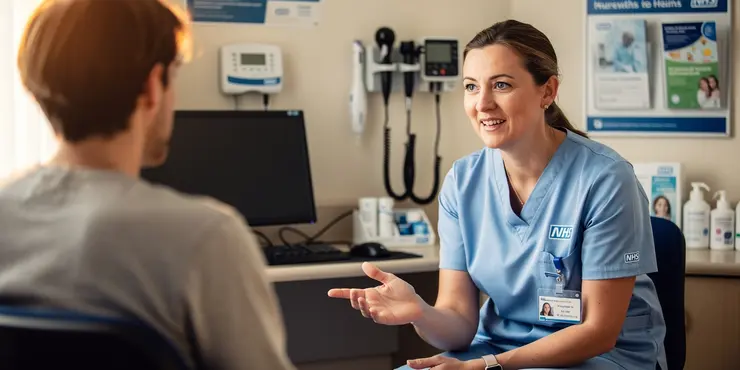
What is Rubella?
Relevance: 59%
-
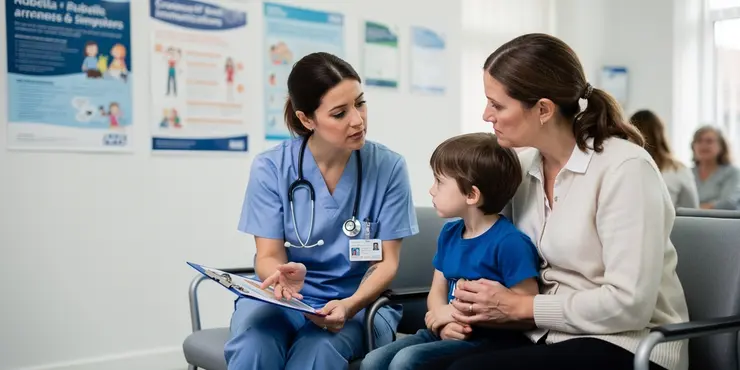
Is Rubella the same as measles?
Relevance: 58%
-
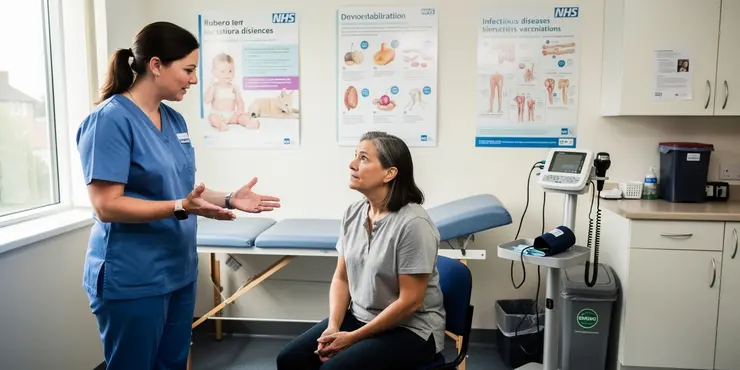
How serious is Rubella?
Relevance: 56%
-
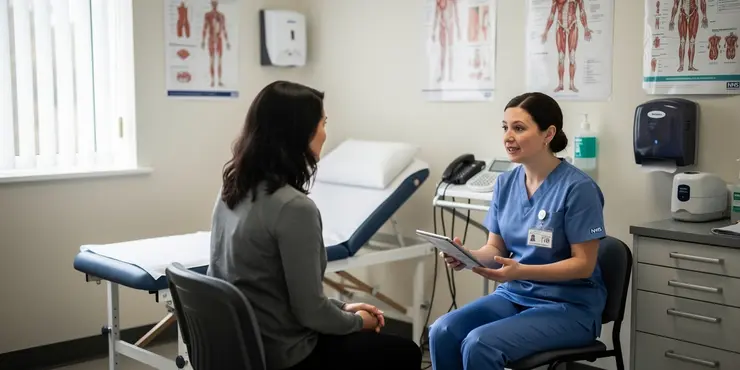
How is Rubella transmitted?
Relevance: 55%
-
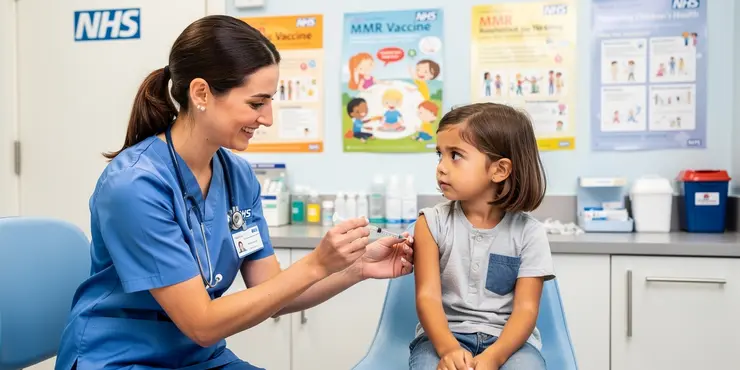
Can Rubella be prevented?
Relevance: 51%
-
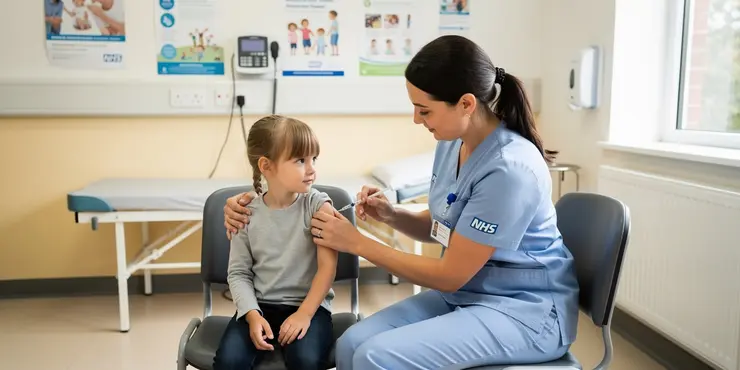
Who should receive the Rubella vaccine?
Relevance: 49%
-
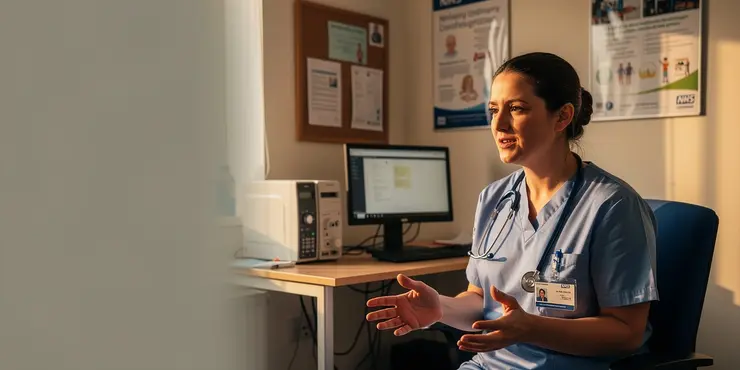
How is Rubella diagnosed?
Relevance: 47%
-
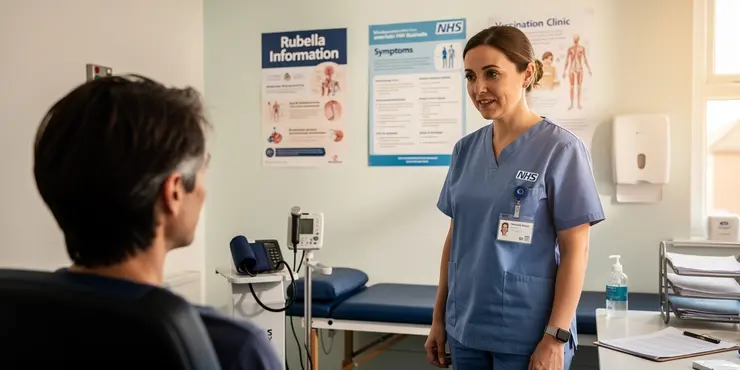
What are the symptoms of Rubella?
Relevance: 47%
-
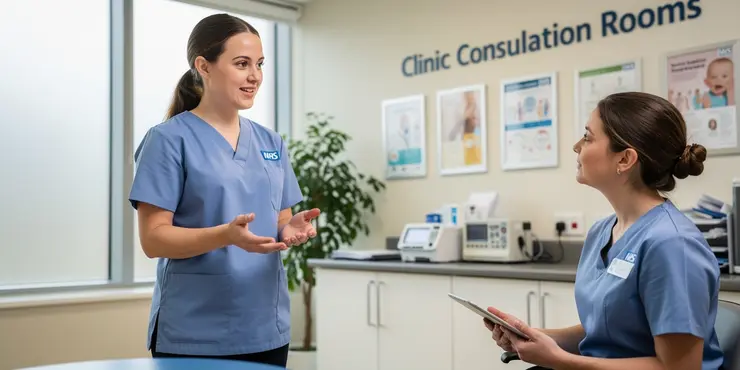
Turner syndrome: Beyond the classic XO phenotype
Relevance: 28%
-
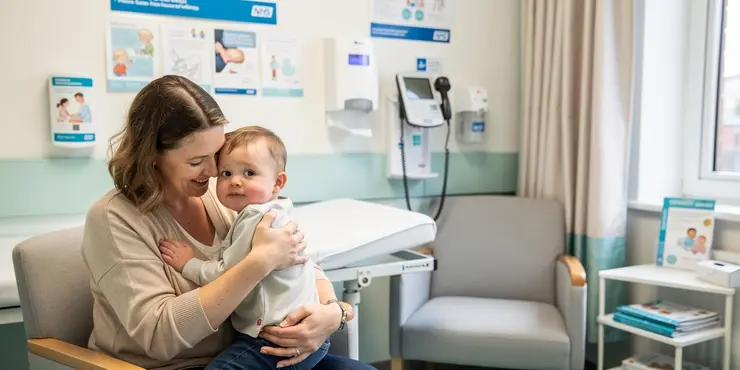
Having a child with Down's syndrome | NHS
Relevance: 27%
-
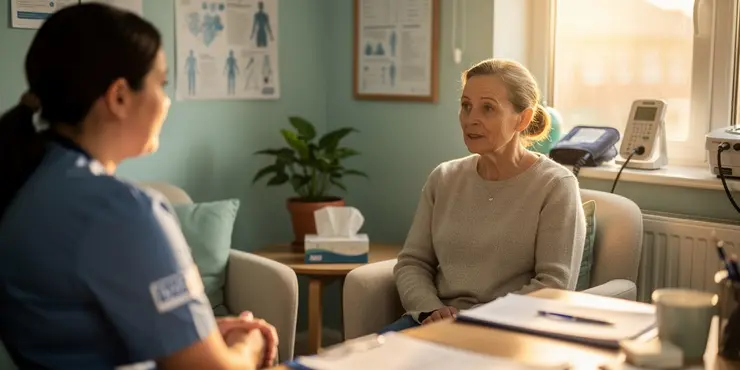
What is Cushing's syndrome?
Relevance: 27%
-
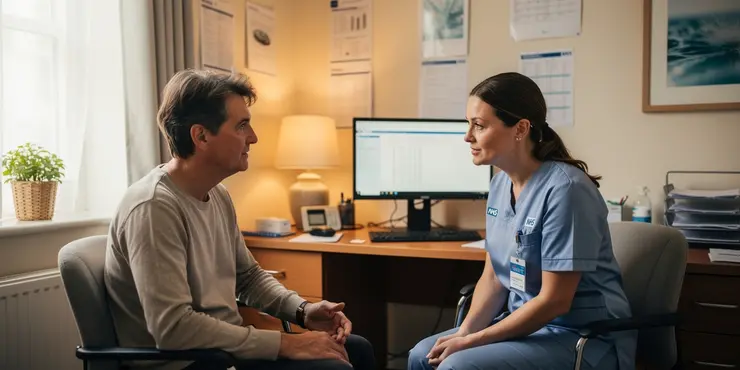
Munchausen's syndrome | NHS
Relevance: 27%
-
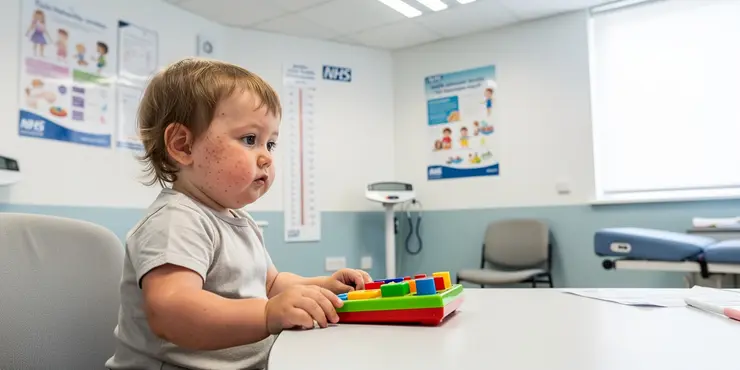
Prader-Willi Syndrome | NHS
Relevance: 27%
-
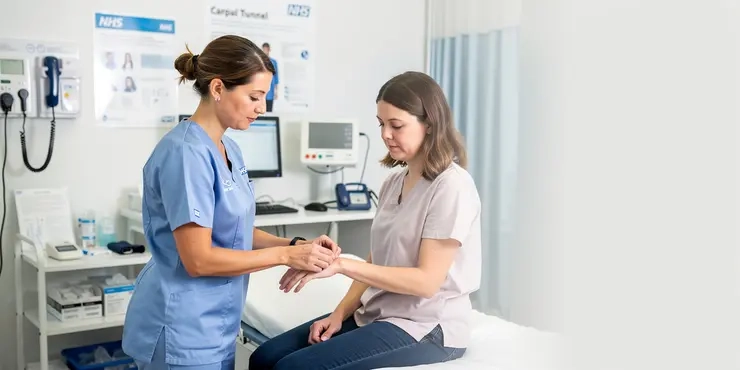
Carpal Tunnel Syndrome
Relevance: 26%
-

Having a child with Edwards' syndrome (trisomy 18) | NHS
Relevance: 25%
-
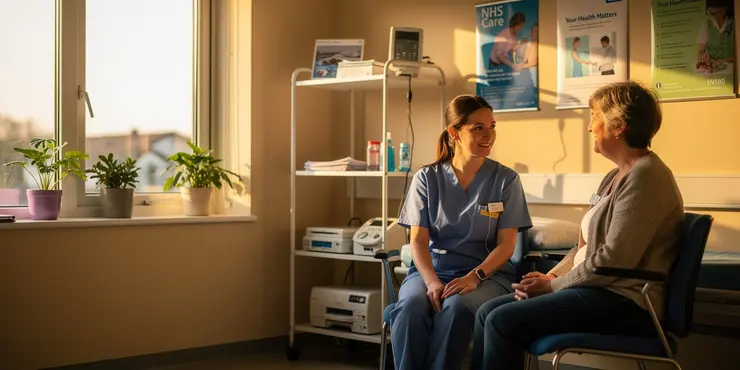
Is chronic fatigue syndrome contagious?
Relevance: 25%
-
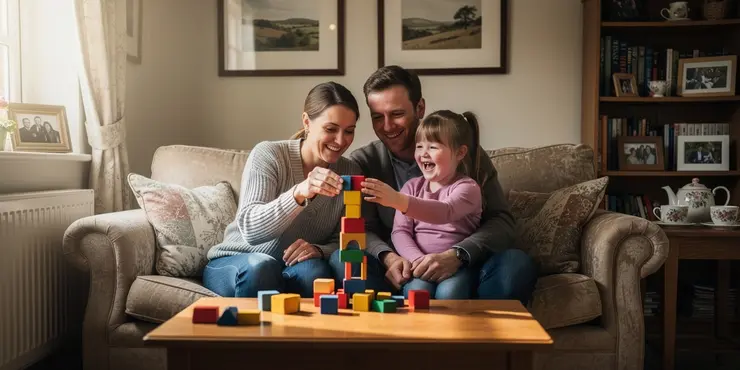
Down's syndrome: Emily's story | NHS
Relevance: 25%
-
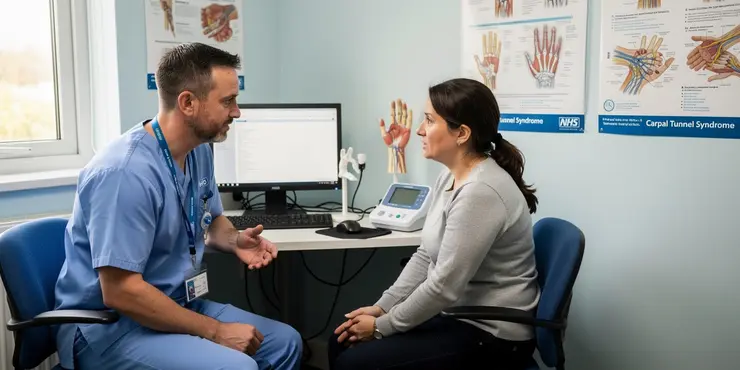
What causes Carpal Tunnel Syndrome?
Relevance: 25%
-
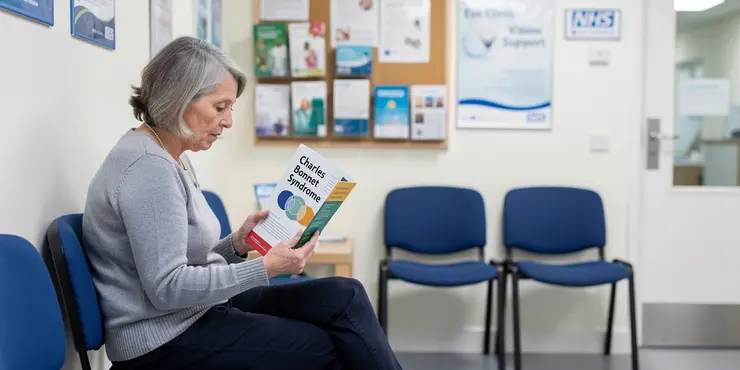
Charles Bonnet Syndrome
Relevance: 25%
-

What causes chronic fatigue syndrome?
Relevance: 24%
-
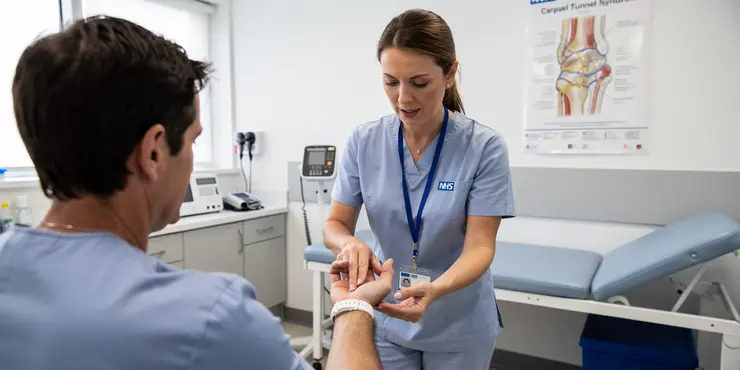
Is Carpal Tunnel Syndrome covered by the NHS?
Relevance: 24%
-
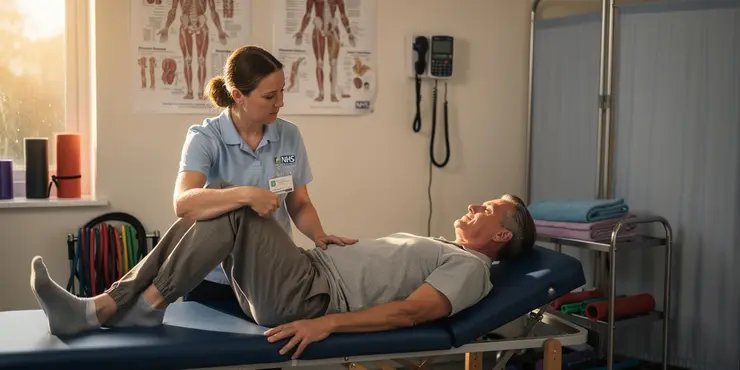
Exercises for sciatica: piriformis syndrome | NHS
Relevance: 24%
-
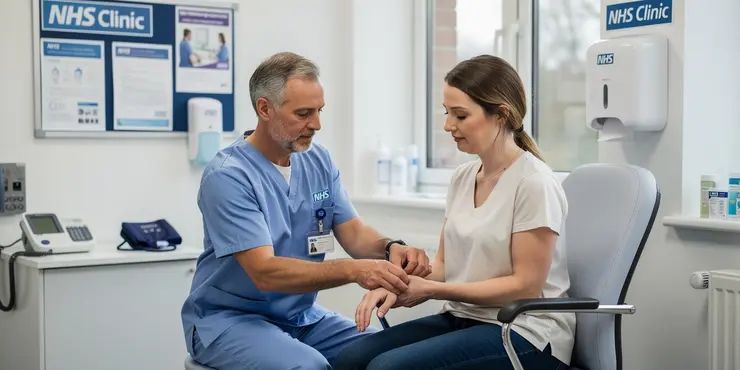
How is Carpal Tunnel Syndrome diagnosed?
Relevance: 24%
-

What is complex sleep apnea syndrome?
Relevance: 24%
-
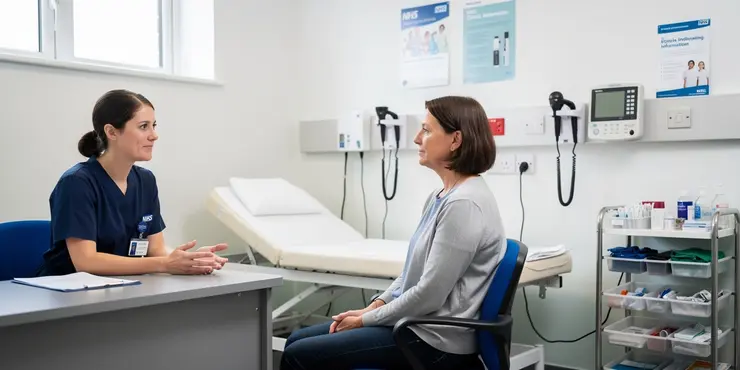
What is complex sleep apnea syndrome?
Relevance: 24%
-
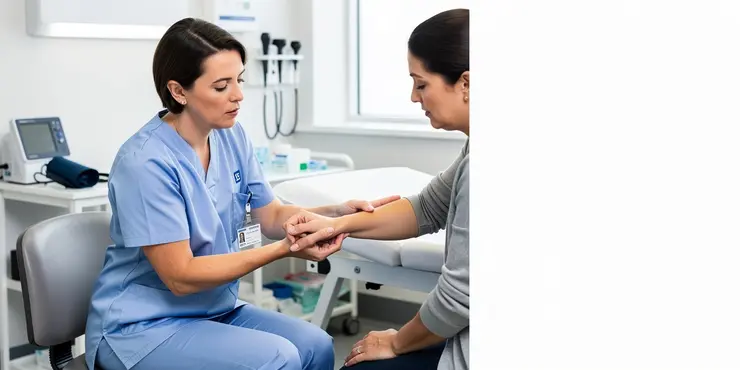
What is Carpal Tunnel Syndrome (CTS)?
Relevance: 24%
-
What is chronic fatigue syndrome?
Relevance: 24%
-
How can I prevent Carpal Tunnel Syndrome?
Relevance: 23%
-
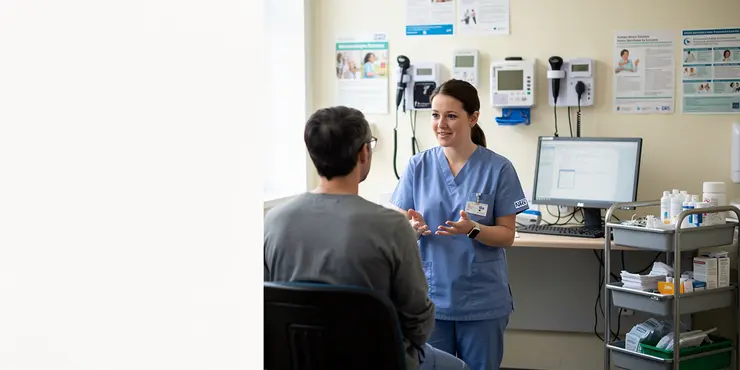
What is the difference between autism and Asperger's syndrome?
Relevance: 23%
-
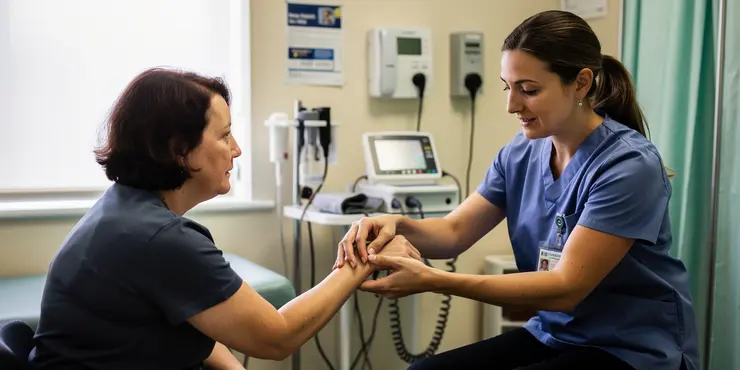
Are there any alternative treatments for Carpal Tunnel Syndrome?
Relevance: 23%
-
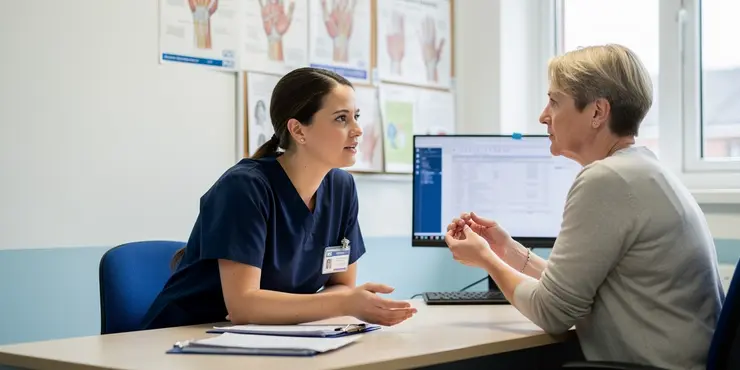
Can Carpal Tunnel Syndrome recur after treatment?
Relevance: 22%
-
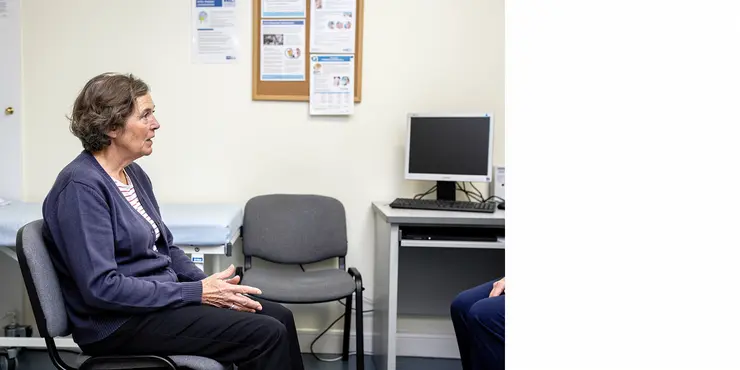
Are there psychological aspects to chronic fatigue syndrome?
Relevance: 22%
-
Is chronic fatigue syndrome a mental illness?
Relevance: 22%
-

Greater trochanteric pain syndrome
Relevance: 22%
-
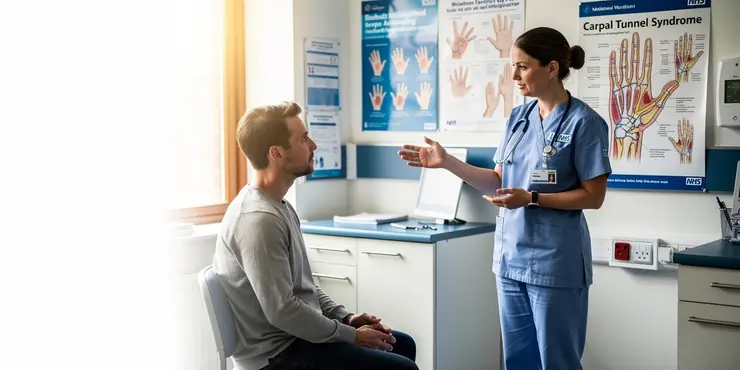
When should I consider surgery for Carpal Tunnel Syndrome?
Relevance: 22%
-
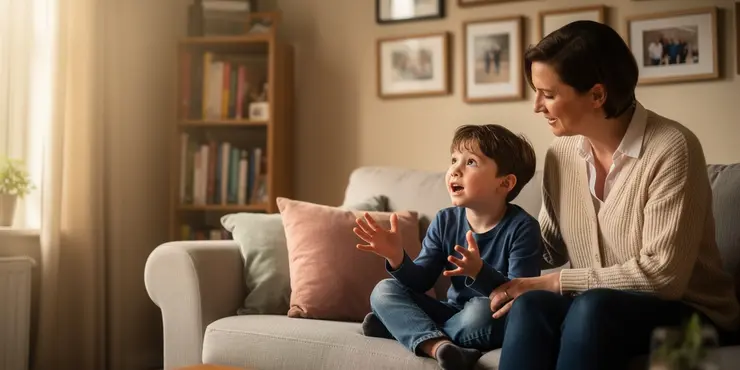
Building Understanding and Supporting Your Child with Tourette’s Syndrome/Tics
Relevance: 22%
-
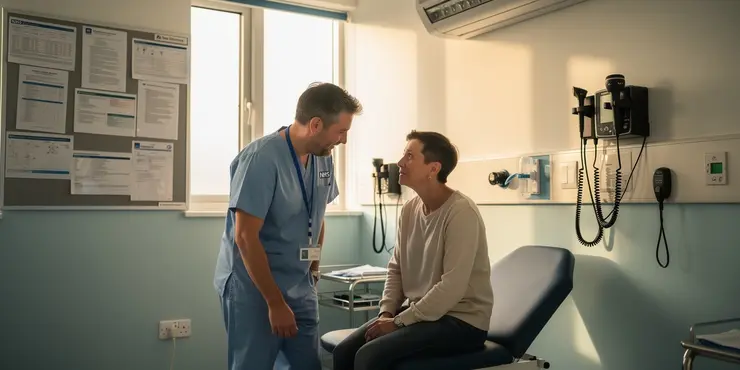
What role do infections play in chronic fatigue syndrome?
Relevance: 22%
-
Can baby sleep pillows prevent flat head syndrome?
Relevance: 22%
-
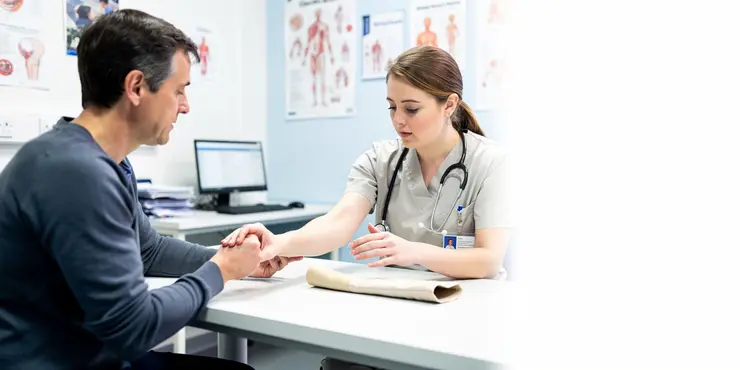
What non-surgical treatments are available for Carpal Tunnel Syndrome?
Relevance: 22%
What is Congenital Rubella Syndrome?
Congenital Rubella Syndrome (CRS) is a condition that occurs in a developing fetus when a woman contracts rubella (commonly known as German measles) during her pregnancy. The rubella virus is a teratogen, meaning it can disrupt the development of an embryo or fetus, leading to severe birth defects. Due to the availability of the rubella vaccine, cases of CRS have become rare in many regions, including the UK. However, it remains a significant concern in areas where vaccination coverage is low.
Causes and Transmission
Rubella is a contagious viral infection that spreads through respiratory droplets. If a pregnant woman becomes infected, particularly during the first trimester, the virus can cross the placental barrier and infect the developing fetus. The risk of the fetus developing CRS is highest in the first 11 weeks of pregnancy, with a risk of around 90% if the mother contracts rubella during this period. The risk decreases as the pregnancy progresses but remains present throughout.
Symptoms and Complications
CRS can cause a wide range of symptoms and complications, which can vary in severity. Common manifestations include hearing impairment, heart defects (such as patent ductus arteriosus or pulmonary artery stenosis), and eye abnormalities like cataracts and glaucoma. Neurological complications, including developmental delay and intellectual disabilities, are also associated with CRS. Other potential issues include growth retardation, liver and spleen problems, and skin rashes.
Diagnosis
CRS is typically diagnosed based on a combination of clinical findings, maternal history of rubella infection during pregnancy, and laboratory tests. Tests may include confirming the presence of rubella-specific IgM antibodies in the infant's blood. Prenatal diagnosis can also be performed through amniocentesis or PCR testing of fetal blood if maternal infection is suspected.
Prevention
The most effective way to prevent CRS is through widespread immunization with the MMR vaccine, which protects against measles, mumps, and rubella. It is crucial for women of childbearing age to ensure they are vaccinated before becoming pregnant. The MMR vaccine is part of the routine immunization schedule in the UK and is typically administered to children in two doses. High vaccination coverage ensures herd immunity, reducing the risk of rubella outbreaks and subsequent CRS cases.
Treatment and Management
There is no specific treatment for CRS, and management focuses on addressing the individual symptoms and complications. Early intervention services, including hearing aids for auditory impairments, surgical procedures for heart defects, and educational support for developmental challenges, can improve outcomes for affected children. Multidisciplinary care involving paediatricians, cardiologists, audiologists, and other specialists is often necessary to manage the varied needs of children with CRS.
What is Congenital Rubella Syndrome?
Congenital Rubella Syndrome (CRS) happens when a mother gets a virus called rubella while she is pregnant. Rubella is also called German measles. This virus can harm the baby before it is born, causing serious problems. Because of the rubella vaccine, CRS is rare in many places like the UK. But it is still a problem in places where not many people get vaccinated.
Causes and Transmission
Rubella is a virus that spreads when people sneeze or cough. If a pregnant woman catches rubella, especially in the first three months, it can pass to the baby. The baby has the highest risk of CRS if the mother gets rubella in the first 11 weeks. The chance of the baby having CRS drops as the pregnancy goes on but is still possible.
Symptoms and Complications
CRS can cause many problems. Some common problems are trouble hearing, heart issues, and eye problems like cloudy eyes. It can also cause learning problems and slow growth. Other issues can include problems with the liver and skin rashes.
Diagnosis
Doctors find out if a baby has CRS by looking at the baby's signs and asking about the mother's rubella during pregnancy. They also do tests on the baby’s blood. If doctors think the mom got rubella, they can test the baby before it's born.
Prevention
The best way to stop CRS is to get the MMR vaccine. This vaccine protects against measles, mumps, and rubella. It is important for women to get the vaccine before they have a baby. In the UK, kids get the MMR vaccine two times as part of their regular shots. When lots of people get vaccinated, fewer people get rubella, which means fewer cases of CRS.
Treatment and Management
There is no single treatment for CRS. Doctors help by treating each problem. For example, they might use hearing aids if there are hearing problems, or surgery for heart problems. Early help is important. A team of doctors who are experts in different areas can help take care of children with CRS.
Frequently Asked Questions
What is congenital rubella syndrome?
Congenital rubella syndrome (CRS) is a condition that occurs in a developing fetus when a pregnant woman is infected with the rubella virus, especially during the first trimester of pregnancy.
How does congenital rubella syndrome occur?
CRS occurs when a pregnant woman contracts rubella, also known as German measles, and the virus passes through the placenta to infect the developing fetus.
What are the common symptoms of congenital rubella syndrome?
Common symptoms of CRS include hearing impairment, heart defects, cataracts, developmental delay, and growth retardation.
How is congenital rubella syndrome diagnosed?
CRS is diagnosed based on a combination of the mother's rubella infection history, clinical examination of the newborn, and laboratory tests confirming rubella infection.
Can congenital rubella syndrome be prevented?
Yes, CRS can be prevented by vaccinating women of childbearing age against rubella before they become pregnant.
Is there a treatment for congenital rubella syndrome?
There is no cure for CRS, but managing symptoms through medical care can help improve the quality of life for those affected.
What is the rubella vaccine?
The rubella vaccine is a live attenuated vaccine that protects against rubella infection and is usually combined with measles and mumps vaccines (MMR).
When is the rubella vaccine typically given?
The rubella vaccine is usually given to children in two doses, the first around 12-15 months of age and the second between 4-6 years of age.
What are the risks of rubella infection during pregnancy?
Infection with rubella during pregnancy, especially early in pregnancy, greatly increases the risk of congenital rubella syndrome in the unborn child.
What percentage of babies born to women infected with rubella in the first trimester develop CRS?
Approximately 80-90% of babies born to women who are infected with rubella in the first trimester will develop congenital rubella syndrome.
What are long-term effects of congenital rubella syndrome?
Long-term effects of CRS can include chronic disabilities such as deafness, visual impairments, and developmental delays.
Can congenital rubella syndrome be detected before birth?
Prenatal tests, including ultrasound and rubella-specific IgM testing in fetal blood, can be used to detect possible CRS before birth.
Why is the rubella vaccine important?
The rubella vaccine is important because it helps prevent rubella infections, thereby reducing the incidence of congenital rubella syndrome.
Can adults get the rubella vaccine?
Yes, adults can receive the rubella vaccine, particularly if they have never been vaccinated and are at risk of exposure to rubella.
Is congenital rubella syndrome contagious?
CRS itself is not contagious, but infants with CRS can shed the rubella virus in their body fluids, which can be contagious to others.
What is the global impact of congenital rubella syndrome?
CRS has significant developmental and healthcare impacts worldwide, particularly in regions without widespread rubella vaccination programs.
What should pregnant women do if exposed to rubella?
Pregnant women exposed to rubella should contact their healthcare provider immediately for testing and potential medical intervention.
Are there any contraindications to the rubella vaccine?
Yes, the rubella vaccine should not be administered to pregnant women or individuals with severe immunosuppression.
What public health measures help prevent congenital rubella syndrome?
Public health measures include widespread vaccination, public education about rubella, and monitoring and controlling outbreaks.
How can communities support families affected by congenital rubella syndrome?
Communities can support affected families by providing access to healthcare, educational resources, and social support services.
What is congenital rubella syndrome?
Babies can get sick if their mom has rubella while she is pregnant. This is called congenital rubella syndrome.
Rubella is a virus. If a pregnant woman catches it, her baby can have problems when they are born. These problems can be with the baby's heart, ears, or eyes.
If you are going to have a baby, talk to your doctor about getting vaccinated to protect your baby from rubella.
Use pictures and videos to help understand more about congenital rubella syndrome.
Congenital rubella syndrome (CRS) is something that can happen to a baby in the womb if a pregnant mother gets the rubella virus. This is more likely to happen if the mother catches the virus in the first few months of being pregnant.
What is congenital rubella syndrome and how does it happen?
Congenital rubella syndrome (CRS) is an illness that babies can get if their mothers have rubella during pregnancy.
Rubella is a virus that makes people feel sick. It can cause a rash and fever.
If a pregnant woman gets rubella, the baby inside her tummy can also get sick. This might make the baby have problems after being born.
To help understand and prevent CRS, here are some ways to stay healthy:
- Get a rubella vaccine before you get pregnant.
- Go to the doctor regularly during pregnancy.
- Ask your doctor if they have ways to check for rubella.
CRS happens when a pregnant woman catches a sickness called rubella, or German measles. The virus can move to the baby in her tummy through the placenta.
What are the common signs of congenital rubella syndrome?
Congenital rubella syndrome is when a baby has health problems because their mother had rubella while pregnant. This is also called German measles. Here are some signs that a baby might have this syndrome:
- Eye problems, like not seeing well or being blind.
- Hearing problems or being deaf.
- Heart problems, meaning their heart doesn't work right.
- Growth problems, meaning they might not get bigger as they should.
- Skin rash that's like small pink spots.
- Development problems, meaning they might learn to do things like walking or talking later than other kids.
If you think a baby has these problems, a doctor can help. It’s important to visit the doctor.
To understand this better, you can:
- Ask a grown-up to explain it to you.
- Look at pictures or videos about it.
- Use a computer to find more simple stories.
When someone has CRS, they might have trouble hearing, problems with their heart, cloudy patches in their eyes (called cataracts), or grow and learn more slowly.
Useful tools can be pictures or objects to help explain these symptoms.
How do doctors know if a baby has congenital rubella syndrome?
Doctors find out if a baby has CRS by checking:
- If the baby's mother had rubella (a type of sickness).
- How the baby looks and feels during a doctor's check-up.
- Doing special tests to make sure the baby has rubella.
Families can use tools like pictures and simple charts to understand more.
Can babies be protected from rubella syndrome?
Babies can be protected from getting rubella syndrome before they are born. Here are some ways to keep babies safe:
- Women can get a rubella shot before pregnancy. This shot helps protect the baby.
- Doctors and nurses can help with planning a healthy pregnancy.
- Remember to check with a doctor if you are planning to have a baby.
These steps can help make sure a baby is born healthy. If you have questions, ask a doctor, nurse, or an adult you trust.
Yes, we can stop CRS by giving women a special shot. This shot is called a rubella vaccine. Women should get this shot before they get pregnant.
Can doctors help babies born with rubella?
There is no cure for CRS. But you can feel better with medical help. Doctors can help with the symptoms. This means you can live a happier life.
What is the rubella vaccine?
The rubella vaccine is a shot. It helps to stop people from getting sick with rubella.
Rubella is a disease. It makes you feel unwell, like having a cold. It can also cause a rash.
It is important to have the vaccine. It keeps you healthy and stops spreading the disease to others.
If you need help, ask a doctor or a nurse. They will explain and help you understand.
The rubella vaccine helps stop you from getting sick with rubella. It is a type of vaccine called "live attenuated." It is often given with other vaccines for measles and mumps in one shot called the MMR vaccine.
When do you usually get the rubella vaccine?
Children usually get the rubella vaccine when they are young. It is part of a shot called the MMR vaccine.
This shot helps protect against measles, mumps, and rubella. Most kids get their first shot at 1 year old and a second shot between 4 and 6 years old.
If you are not sure about the shots, ask a doctor or nurse. They can give you more information.
Kids usually get the rubella vaccine two times. The first time is when they are 12 to 15 months old. The second time is when they are 4 to 6 years old.
To help with reading, you can use picture books or videos about going to the doctor. An adult can also help explain the vaccine in simple words.
What are the dangers of getting rubella when you are having a baby?
If a pregnant woman gets rubella, especially at the start of her pregnancy, it can really hurt the baby before it is born. This is called congenital rubella syndrome.
How many babies get CRS if their mom has rubella early in pregnancy?
When a mom gets rubella (a type of illness) early in her pregnancy, 8 or 9 out of 10 babies might have problems called congenital rubella syndrome.
What problems can happen later from being born with rubella?
Sometimes, CRS can cause problems that last a long time. These problems might be trouble hearing (deafness), problems seeing (visual impairments), or taking longer to learn and grow (developmental delays).
Here are some tips that might help:
- Use pictures and videos to learn new things.
- Try hearing aids or glasses if you have trouble hearing or seeing.
- Talk to a teacher or a helper if learning is hard.
Can doctors find congenital rubella syndrome before a baby is born?
Doctors can sometimes find out if a baby might have congenital rubella syndrome before they are born. They may use special tests to check the baby. If you are worried, talk to your doctor. They can help and give you advice.
You can use pictures or apps to help understand. Ask someone to explain if you find it hard to read.
Doctors can do special tests to check for CRS before a baby is born. These tests include looking at the baby with a scan called an ultrasound and checking the baby's blood for something called rubella IgM.
Why do we need the rubella vaccine?
The rubella vaccine stops people from getting rubella.
Rubella is a sickness. It can make people feel bad.
The vaccine helps keep everyone safe from getting sick.
It is very good for pregnant women and their babies.
Ask a doctor if you have questions about vaccines.
You can use pictures or videos to learn more.
The rubella vaccine is very important. It stops people from getting sick with rubella. This helps keep babies safe from something called congenital rubella syndrome.
Can grown-ups get the rubella shot?
Yes, grown-ups can get the rubella shot. It helps protect you from getting sick. If you have not had the shot before or if you are not sure, ask your doctor. They can tell you what to do.
Here are some tips to help you understand:
- Ask the doctor or nurse to explain slowly.
- Bring a friend or family member to help you remember what is said.
- Use pictures to understand how the shot works.
- Write down questions before you go to the doctor.
Yes, grown-ups can get the rubella shot. This is a good idea if they never had the shot before and might catch rubella.
Can you catch congenital rubella syndrome from someone?
CRS is not something you can catch from someone else. But babies with CRS can have the rubella virus in their body fluids, like saliva or urine. This virus can spread to other people.
How does congenital rubella syndrome affect the world?
CRS is a big health problem in many places around the world. This happens more where people don't get vaccinated for rubella.
What should pregnant women do if around rubella?
Rubella is a virus that can make you sick. It is also called German measles.
If you are pregnant and near someone with rubella, tell your doctor right away.
Your doctor can help you stay healthy and keep your baby safe.
You can use tools like a friend or family member to help you understand what the doctor says.
If a pregnant woman is near someone with rubella, she should tell her doctor right away. The doctor will do some tests and might give her medicine to help.
Who should not get the rubella vaccine?
The rubella vaccine should not be given to pregnant women. It is also not for people with very weak immune systems.
If you need help with this information, you can ask a doctor or nurse. They can give you more advice.
How can we stop babies from getting sick with rubella?
To keep people healthy, we do some important things:
- We give vaccines to lots of people. Vaccines help stop sickness.
- We teach people about rubella. Rubella is a sickness, and we want people to know about it.
- We watch for any outbreaks. An outbreak is when a lot of people get sick at the same time. We try to stop these.
If you find reading hard, you can use tools that read out loud or highlight words to help you understand better.
How can communities help families with children who have congenital rubella syndrome?
Communities can do a lot to help. Here are some simple ideas:
- Be Friendly: Talk to families and make them feel welcome.
- Share Information: Learn about congenital rubella syndrome so you can understand better.
- Offer Help: Ask families if they need any help, like with shopping or babysitting.
- Join Support Groups: You can start or join a group where everyone can share their experiences and advice.
- Use Tools: Things like picture cards or special apps can help with communication.
Being kind and understanding makes a big difference!
Communities can help families by giving them access to doctors, schools, and places where they can get help and talk to people.
Useful Links
This website offers general information and is not a substitute for professional advice.
Always seek guidance from qualified professionals.
If you have any medical concerns or need urgent help, contact a healthcare professional or emergency services immediately.
Some of this content was generated with AI assistance. We’ve done our best to keep it accurate, helpful, and human-friendly.
- Ergsy carfully checks the information in the videos we provide here.
- Videos shown by Youtube after a video has completed, have NOT been reviewed by ERGSY.
- To view, click the arrow in centre of video.
- Most of the videos you find here will have subtitles and/or closed captions available.
- You may need to turn these on, and choose your preferred language.
- Go to the video you'd like to watch.
- If closed captions (CC) are available, settings will be visible on the bottom right of the video player.
- To turn on Captions, click settings .
- To turn off Captions, click settings again.
More Items From Ergsy search
-

What is congenital rubella syndrome?
Relevance: 100%
-

What is Rubella?
Relevance: 59%
-

Is Rubella the same as measles?
Relevance: 58%
-

How serious is Rubella?
Relevance: 56%
-

How is Rubella transmitted?
Relevance: 55%
-

Can Rubella be prevented?
Relevance: 51%
-

Who should receive the Rubella vaccine?
Relevance: 49%
-

How is Rubella diagnosed?
Relevance: 47%
-

What are the symptoms of Rubella?
Relevance: 47%
-

Turner syndrome: Beyond the classic XO phenotype
Relevance: 28%
-

Having a child with Down's syndrome | NHS
Relevance: 27%
-

What is Cushing's syndrome?
Relevance: 27%
-

Munchausen's syndrome | NHS
Relevance: 27%
-

Prader-Willi Syndrome | NHS
Relevance: 27%
-

Carpal Tunnel Syndrome
Relevance: 26%
-

Having a child with Edwards' syndrome (trisomy 18) | NHS
Relevance: 25%
-

Is chronic fatigue syndrome contagious?
Relevance: 25%
-

Down's syndrome: Emily's story | NHS
Relevance: 25%
-

What causes Carpal Tunnel Syndrome?
Relevance: 25%
-

Charles Bonnet Syndrome
Relevance: 25%
-

What causes chronic fatigue syndrome?
Relevance: 24%
-

Is Carpal Tunnel Syndrome covered by the NHS?
Relevance: 24%
-

Exercises for sciatica: piriformis syndrome | NHS
Relevance: 24%
-

How is Carpal Tunnel Syndrome diagnosed?
Relevance: 24%
-

What is complex sleep apnea syndrome?
Relevance: 24%
-

What is complex sleep apnea syndrome?
Relevance: 24%
-

What is Carpal Tunnel Syndrome (CTS)?
Relevance: 24%
-
What is chronic fatigue syndrome?
Relevance: 24%
-
How can I prevent Carpal Tunnel Syndrome?
Relevance: 23%
-

What is the difference between autism and Asperger's syndrome?
Relevance: 23%
-

Are there any alternative treatments for Carpal Tunnel Syndrome?
Relevance: 23%
-

Can Carpal Tunnel Syndrome recur after treatment?
Relevance: 22%
-

Are there psychological aspects to chronic fatigue syndrome?
Relevance: 22%
-
Is chronic fatigue syndrome a mental illness?
Relevance: 22%
-

Greater trochanteric pain syndrome
Relevance: 22%
-

When should I consider surgery for Carpal Tunnel Syndrome?
Relevance: 22%
-

Building Understanding and Supporting Your Child with Tourette’s Syndrome/Tics
Relevance: 22%
-

What role do infections play in chronic fatigue syndrome?
Relevance: 22%
-
Can baby sleep pillows prevent flat head syndrome?
Relevance: 22%
-

What non-surgical treatments are available for Carpal Tunnel Syndrome?
Relevance: 22%


